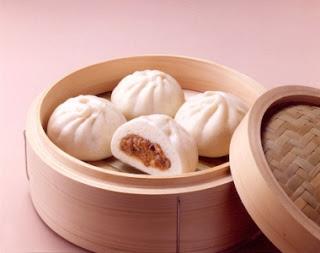Monkeys are
pretty awesome. Whoever is about to
contradict me on this point probably has a valid argument, but I am refusing to
listen because I also acknowledge monkeys can be disgusting. So can humans. In fact, every single critter on this planet
is disgusting in some way. In fact, you
know one thing the United States severely lacks? Wild monkeys.
I kid you not. I mean, yeah,
you’ve got possums and coons and skunks and squirrels and chipmunks and all
sorts of wonderful critters just dying to be seen, but you don’t have
monkeys! Japan does have monkeys. Specifically, they have Japanese
macaques. My family now lives too far
north to see them in the wild (although our zoo, which I will probably discuss
thoroughly in a future post, has a fair collection of them), but we used to
live further south.
And, dear
friends, I may have never touched a monkey in my life, but I have seen them in
their wild, natural habitats.
Okay, I’ll
admit, I’ve never seen them sitting in a hot spring, except on TV, but that
doesn’t matter. I have had a monkey in
my own front yard. (Be quiet, ye
missionary kids of Africa, mainland Asia, and South America. I am having my moment of glory now. I fully acknowledge you’ve had more monkeys
than me.)
So, there’s
not much to tell about having a Japanese macaque in your own front yard. It came.
It ate some berries. I think it
even went on our roof. It almost peed on
me (Oh, yes, I just wrote that.).
Fortunately, I got away in time.
Eventually, it left; back to go find his own monkey kind. I never saw him again.
Good
news—that is not the only wild
Japanese macaque I ever saw in real life.
No, every year, back when we lived down south, our church went on a
picnic under the plum blossoms (because cherry blossoms are too common), and every
year, we ended up taking this one very windy road. That’s what happens when you live in the
mountains. You end up taking these roads
guaranteed to induce carsickness to those inclined in such a way.
Guess who
gets carsick? And guess who always wanted
us to take that road? Yep, me. Because that road was fondly nicknamed “The
Monkey Road” for a reason—it had plenty of monkeys living around it. Everyone loved to stop and look at the
monkeys and take pictures, and some people even fed them (Mom wouldn’t let
me.). Trust me, the nausea you may feel
traveling down that road is worth it because there are MONKEYS! Even if you have to
pull over three times because you feel like you’re about to puke up your peanut
butter and jelly sandwich, you get to see monkeys.
Also, on a
completely unrelated note, don’t feed the monkeys at the zoo. The zookeepers tend not to like you doing
that. Not that I have EVER tried feeding
a monkey, much less been successful at it.
 |
| I know absolutely NOTHING about this picture. *shifty eyes |








